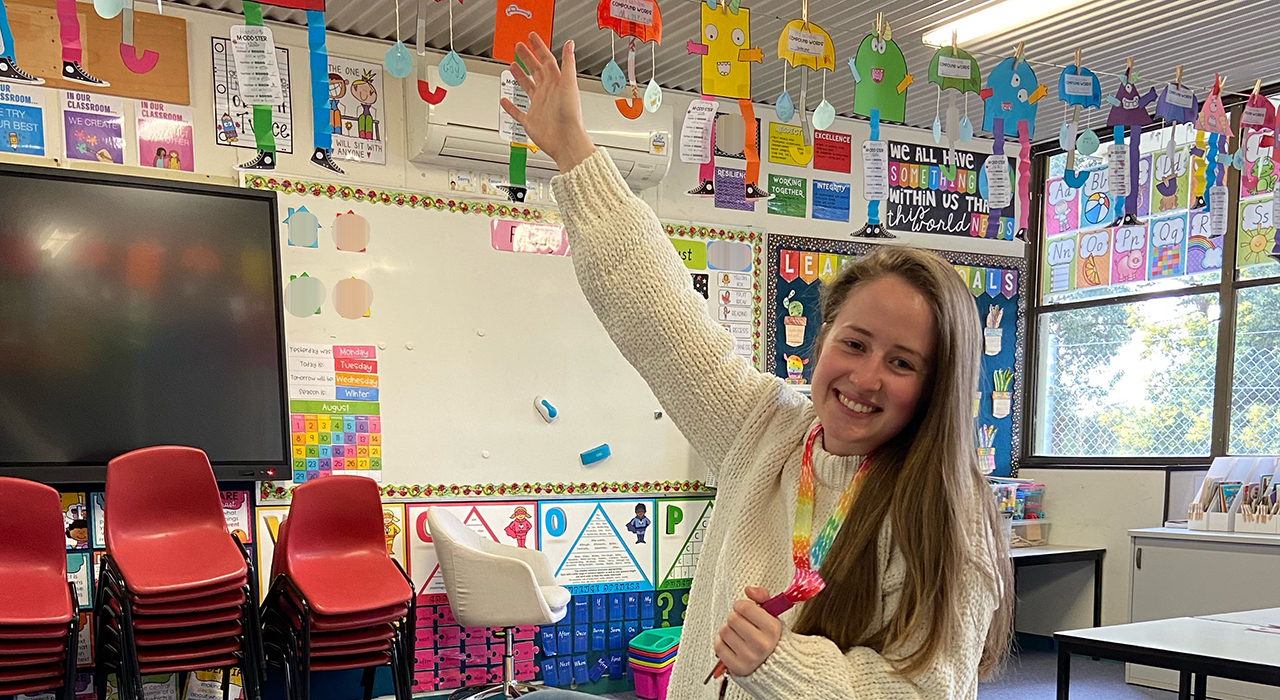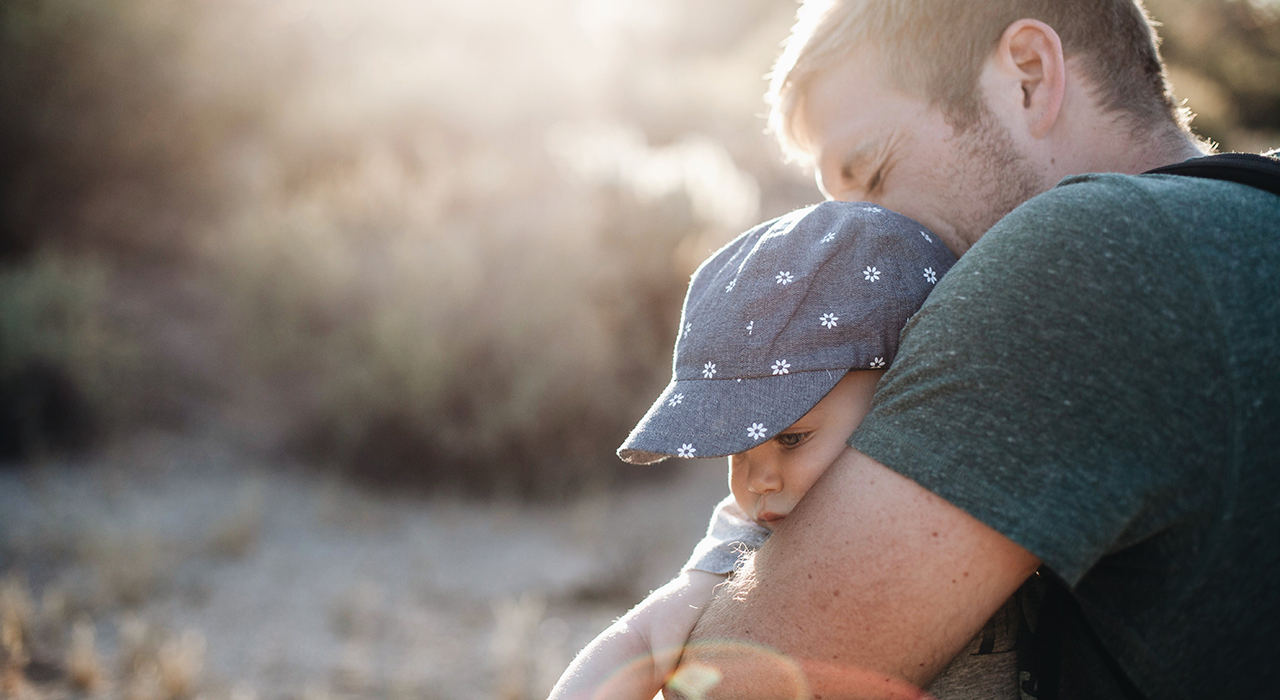Building resilience in kids has never been as important as it is now in our post-pandemic world. The indirect psycho-social impact of COVID-19 on young people—specifically children and adolescents—is emerging, and with each new statistic, research paper and report, an insidious picture is pulled into focus.
This picture shows us that each lockdown over the course of 2020-21 has had a cumulative, detrimental effect on the mental health and wellbeing of children and adolescents. It’s an effect that can be seen in the increased demand on Australia’s Kids’ Helpline, child mental health services and paediatric emergency departments. This demand is a direct reaction to mental health concerns, including anxiety and loneliness, suicidal ideation and self-harm.
Adding to the sombreness of this snapshot is the emerging clarity on how kids younger than five have been affected. The current research is limited, but already indicates that the psycho-social impact of the pandemic for kids aged 0 to 5 include: worsening behaviour and mood; increased clinginess, anxiety and levels of stress; increased hyperactivity and inattention; increased abuse and neglect; decreased physical activity and increased screen time; and possible disruptions to the length and quality of sleep.
What we also know from this picture is that calling the collective psycho-social effects of COVID-19 a ‘problem’ doesn’t come close to describing the severity of the crisis that has been bubbling under the surface.
Without intervention the potential impacts on children’s mental health and development are likely to be enduring, and the ripples we’re already seeing flow through our communities and health systems could become waves.
The root of the crisis is deeper than COVID-19
Through the pandemic, a multitude of factors and challenges have contributed to the negative outcomes in children’s mental health and wellbeing. In a study published through the American Psychological Association, the writers suggest the challenges range from:- Stress from financial and employment insecurity
- Caregiving burden
- Change-related distress
- A disruption to social life
While these challenges alone are significant hurdles to overcome, it’s the impact of not being able to cross them that creates enduring negative effects on children.
Resilience is a crucial protective factor in reducing the impact of challenges—not only for the general population but for the most vulnerable in our communities.
Intervening early to proactively teach kids skills that build protective factors and support resilience has become non-negotiable. These skills can equip children with lifelong tools that support them to adapt and cope with life’s challenges as they arise and support positive life outcomes.
Smiling Mind proposes that greater investment in population level interventions in childhood designed to support the development of skills relating to positive mental health, wellbeing and resilience, as well as a focus on enhancing parental knowledge, confidence and capability to support child wellbeing, should form part of a comprehensive approach to mental health promotion.
Building resilience in children begins at home
In order to find a sustainable way to support the development of mental fitness skills in kids, Smiling Mind commissioned a literature review to explore the factors associated with resilience in families. These factors included:
The relationship between early intervention and the development of resilience
Parental knowledge and capacity to support their children’s wellbeing
Learning what children and parents need to build resilience
The enablers and barriers to accessing support for mental health and wellbeing
Existing literature highlights the critical role parents and caregivers play in building resilience in children. Research on this topic shows that children’s wellbeing and mental health depends on access to responsive and empathetic relationships.
Caregivers have the capacity to nurture characteristics in children throughout their childhood that will increase the protective factors and resilience skills available to children. However, the research also shows that mental health literacy directly impacts a caregiver’s awareness and ability to access support and resources as well as identify when these are needed.
The necessity of kids having support in their home environments—combined with the fact that parents and carers may need resources and support themselves to improve their mental health literacy—is the reason why building resilience is ideal as a family activity.
What is resilience in the context of family?
Resilience doesn’t assume we are immune to the experience of stress, but instead speaks to our ability to withstand and overcome its hardship. For families, this refers to a functional system which has the capacity to withstand and rebound from stressful experiences.
What are kids struggling with the most post-pandemic?
With an intention to design a product that can provide targeted value to its users, Smiling Mind undertook qualitative and participatory research with children and families.
Smiling Mind’s Senior Research Manager, Jed Dib, says, “Often, theoretical or academic research can distance us from the people we intend to support. So, we organised a series of in-person interviews with parents and their children across metro and regional areas of Victoria and New South Wales.”
Through these interviews, Smiling Mind’s research team and Vogl and Blake Research Consultants spoke to 37 carers and 24 children across in-person focus groups and online discussions with parents to find out what kids and their families are struggling with post-pandemic.
What we found:
- Despite the diversity of the families who participated in the research, most were time poor with caregivers tending to be juggling either paid and unpaid work, or several young children.
- Many caregivers expressed concerns about their children’s relationships and a common request for topics was on helping their children to negotiate their friendships and to develop strong bonds.
- Many caregivers suggested topics on mental health, resilience and gratitude.
Many caregivers spoke of the importance of their children learning about inclusivity, kindness and respect for differences. - Almost all the young people wanted topics on friendships and other relationships.
- Children were engaged in different activities for their health and wellbeing. This included mindfulness meditation and colouring in, meditation more generally, sports, yoga, dance, healthy eating, and programs related to managing relationships and emotions.
- Caregivers tended to perceive COVID-19 to have had an essentially negative impact on their children’s social connections.
The qualitative interviews revealed key themes where families are looking for support, including key issues faced by children. These themes are:
- Relationships
- Emotions
- Self-worth
- Perspective
- Flexible thinking
- Problem solving
“I had way too much time on my hands [since Covid], I lost all the social skills I didn’t know I gained.” (11-year-old boy, Regional Victoria)
How Smiling Mind’s evidence-based Resilient Families Program can build children’s resilience
The research undertaken by Smiling Mind has intrinsically informed the development of the Resilient Families program:
- The literature review provided an evidence base for protective factors and skills most closely associated with building resilience in children and families.
- The qualitative research (interviews with parents and children) offered insight into the needs and preferences of children and families, and helped design the program in a way that was appropriate, usable and effective for children aged 7-12 and their parents.
Although the program could have been created for children to work through alone, there’s a resounding desire from kids and parents to work through some activities together.
One parent says, “If it’s about resilience, the kids need to go to the parents. That’s them being in control again. For example, maybe it’s a world or stage you need to complete with mum and dad, and it says go and get mum or dad. That puts the ownership back on them.” (Regional, NSW, nuclear, female, Anglo Australian)
From one 10 year old child’s perspective, working through activities with a caregiver provides an additional opportunity for the caregiver to understand the child better. She says, “Some parents don’t know what their kids are like, or what they like. If you show your parents your world, it gives them a sense of what you want and like.” (NSW, regional, Nuclear family 10 years old, female, Anglo-Australian)
The Resilient Families Program content has been guided by the key themes that arose in the qualitative interviews. These themes have been validated against the literature to ensure the evidence supported these areas.
Each module has been designed to support the development of social emotional skills in kids, with activities to practise and integrate their learnings. For parents and caregivers, each module offers informational resources to build understanding and confidence in the module topic, in relation to their children, and practical support strategies to help them reinforce children’s learning.
The evidence-led Resilient Families program is available for free on the Smiling Mind app.
Support your family’s resilience, and help the kids in your life develop the social emotional skills they need to thrive.












.jpg)



